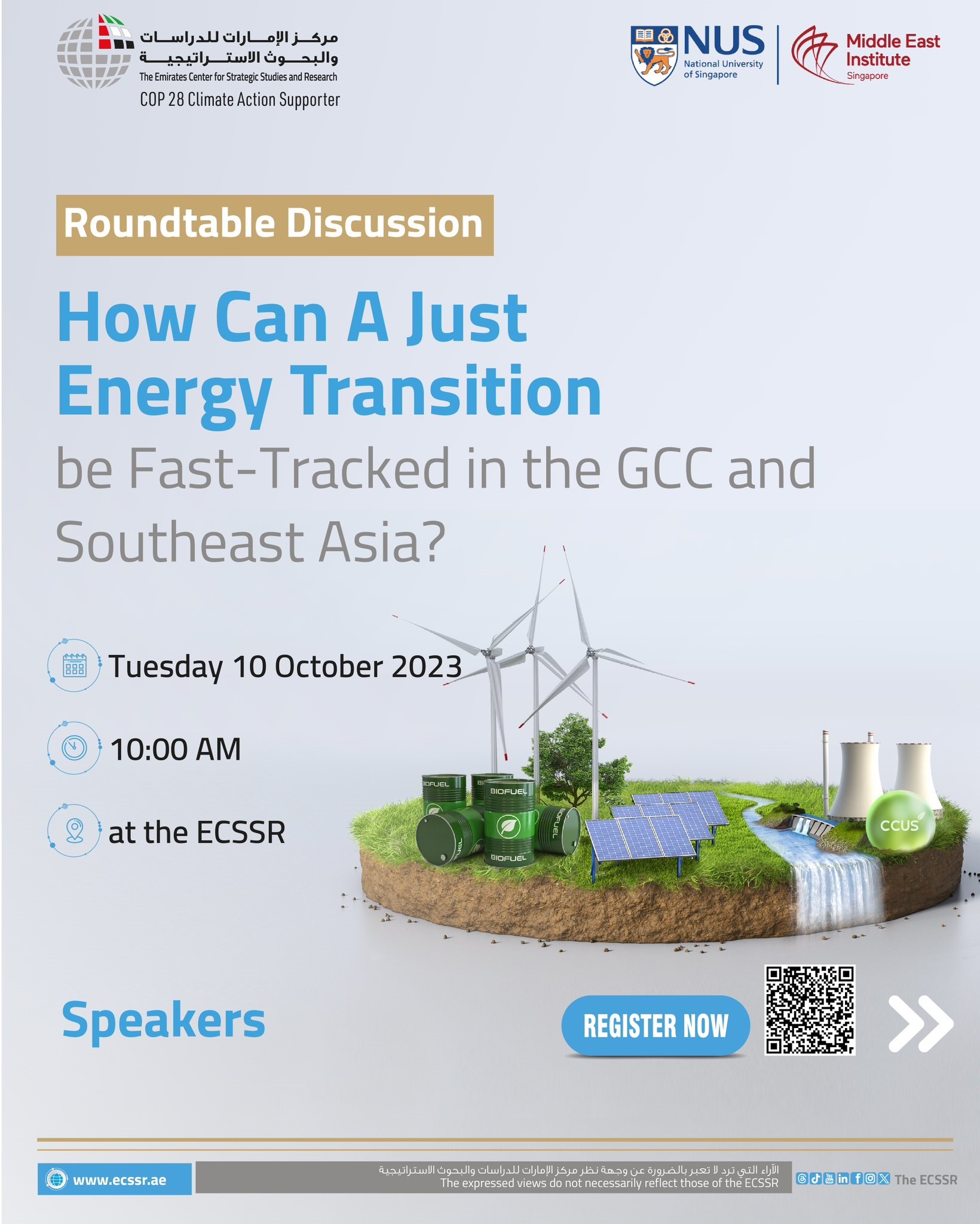
- 10 Oct 2023
Roundtable Discussion – How can a Just Energy Transition be Fast-Tracked in the GCC and Southeast Asia?
The Middle East Institute collaborated with the Emirates Centre for Strategic Studies and Research (ECSSR) to co-organise a roundtable discussion titled, How Can A Just Energy Transition be Fast-Tracked in the GCC and Southeast Asia, in Abu Dhabi on 10 October 2023.
This workshop brought together experts from the Gulf and Southeast Asia to discuss each country’s specific experiences in enabling a just energy transition and explore potential areas of co-operation between the two regions.
Summary
With global surface temperatures already surpassing pre-industrial levels by 1.1 degrees Celsius and July marking the hottest month in history, addressing the root causes of climate change is an urgent concern. The growing challenges of climate change, including its impacts on water and food security, and the frequency of extreme weather events, are particularly evident and increasingly daunting for regions like Southeast Asia and the Middle East, which have contributed lesser in addressing the issue.
There is a consensus that the global community, both developed and developing countries, must work together to reduce greenhouse gas emissions by half by 2030 and reach net-zero by 2050 to prevent catastrophic climate change impacts.
Transitioning is a crucial yet challenging task, especially for developing countries that grapple with energy security and affordability, among other issues. These nations, already the most vulnerable to climate change, often lack the resources to adopt clean energy technologies. Without timely and effective collaboration, the global energy transition could hinder economic growth in these countries, exacerbating existing socio-economic challenges.
Drawing insights from the experiences of Saudi Arabia, the UAE, Oman, Indonesia, and Singapore, it became evident that each country’s unique economic conditions, geography, demographics, and natural resources, shape their own challenges, complex trade-offs, and policy responses with regards to their transition to clean energy.
The concept of a just energy transition differs among countries and is multi-faceted. While primarily focused on reducing greenhouse gas emissions, it is essential that the transition is coupled with energy security and affordability. While incentives play a crucial role in achieving a just energy transition in the short term, it is widely acknowledged that there is no one-size-fits-all solution.
Please find the speakers’ information here.




